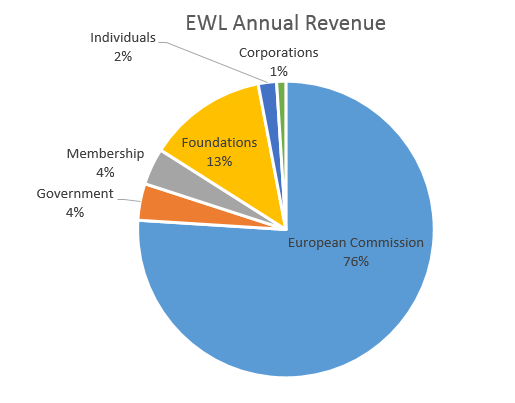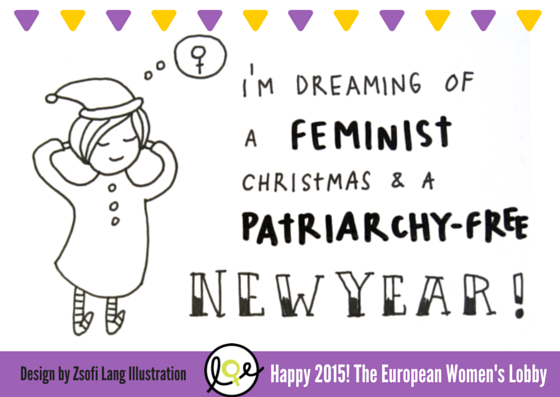(Brussels 28 March 2013) European Court of Human Rights releases judgment in Valiuliene v. Lithuania
State held liable for failure to investigate effectively into complaints of domestic violence
The crimes of silence and the complicity of inaction.
What happens when a domestic violence complaint is received by State authorities? What happens if after a month-long period filled with violence, abuse and stress, you make your case to the authorities? Ideally, the recourse to offices of the state is swift, justice is served, and the guilty punished. You don’t expect for the state to term the ill-treatment you suffered as ‘of a merely trivial nature’, nor to drag their feet in investigating and prosecuting the case. But in Lithuania, this violence was tolerated by the State authorities, allowing the perpetrators to enjoy impunity and the victim to endure even more abuse. Here, a woman desperately attempting to get protection from an abusive partner and ignored by the State has had a judgment rule in her favour from the European Court of Human Rights. But it’s not just silence that kills seven women a day in Europe. It’s inaction.
The EWL welcomes the recent ECHR judgment against the Lithuanian authorities who have been found to have violated article 3 of the European Convention on Human Rights, which prohibits torture and inhuman or degrading treatment. The case is a new landmark case for victims of domestic violence. Treatment has been held by the Court to be “inhuman” because it was premeditated, was applied for hours at a stretch and caused either actual bodily injury or intense physical and mental suffering. Treatment has been considered “degrading” when it was such as to arouse in its victims feelings of fear, anguish and inferiority, capable of humiliating and debasing them and possibly breaking their physical or moral resistance. The Court considered that the ill-treatment of the applicant, which on five occasions caused her physical injuries, combined with her feelings of fear and helplessness, was sufficiently serious to reach the level of severity under of Article 3 of the Convention and thus raise the Government’s positive obligation under this provision. However, the judgement is not yet final, and there is a three month window in which Lithuania can contest the ruling. The applicant was awarded 5000 euros in damages.
Judge Pinto de Alberquerque provided additional insights. “In Valiuliene the Court is again confronted with the excruciating question of domestic violence. The legal relevance of lesser forms of violence such as verbal abuse and minor bodily injuries, the failure to acknowledge the public interest of prosecuting this form of ill-treatment and the final dismissal of the criminal case owing to the statute of limitations give to this case all the ingredients of a leading case, raising fundamental legal issues which have not been dealt with properly by the majority. With all due respect, the majority said too much in some respects and yet not enough in others. This is why I voted for the operative part of the judgment, but cannot subscribe to its motivation.”
Domestic violence has emerged as an autonomous human rights violation consisting in the commission of physical, sexual or psychological harm, or the threat or attempt thereof, in private or public life, by an intimate partner, an ex-partner, a member of the household, or an ex-member of the household. Yet a human rights litigation approach to domestic violence faces three strong conceptual obstacles, all of them very well entrenched in the history of democratic societies: respect for privacy, tolerance vis-a-vis different cultures and the upholding of the rights of defendants. These obstacles can only be overcome by breaking the classical public-private divide and acknowledging the State’s positive obligation to act against domestic violence. States have the obligation not only to bring to justice the alleged offenders and empower the victims of domestic violence with an active role in the criminal proceedings, but also to prevent private actors from committing or reiterating the offence and provide elementary social support measures to victims, such as post-traumatic care and shelter. Such an international positive obligation must be acknowledged, in view of the broad and long-lasting consensus mentioned above, as a principle of customary international law, binding on all States. This is true in the case of violence against women. Domestic violence is basically violence against women. All the available data shows worldwide that domestic violence is in the vast majority of cases violence perpetrated by men against women, and violence by women against men accounts for a very small percentage of domestic violence.”
In a catalogue of errors, Lithuanian authorities neglected to take appropriate action, neglected to take the complainant seriously, or to offer her the protection she deserved and needed. We’ve reached the half point of the Irish Presidency, and Lithuania will take over the rotating Presidency of the European Council in little over than three months. In a political context dominated by the economic and financial crisis, what does this judgement show about the priorities of the next country to hold the rotating Presidency?
More information on the case is available here: http://hudoc.echr.coe.int/sites/eng/pages/search.aspx?i=001-117636#%22itemid%22:[%22001-117636%22]


